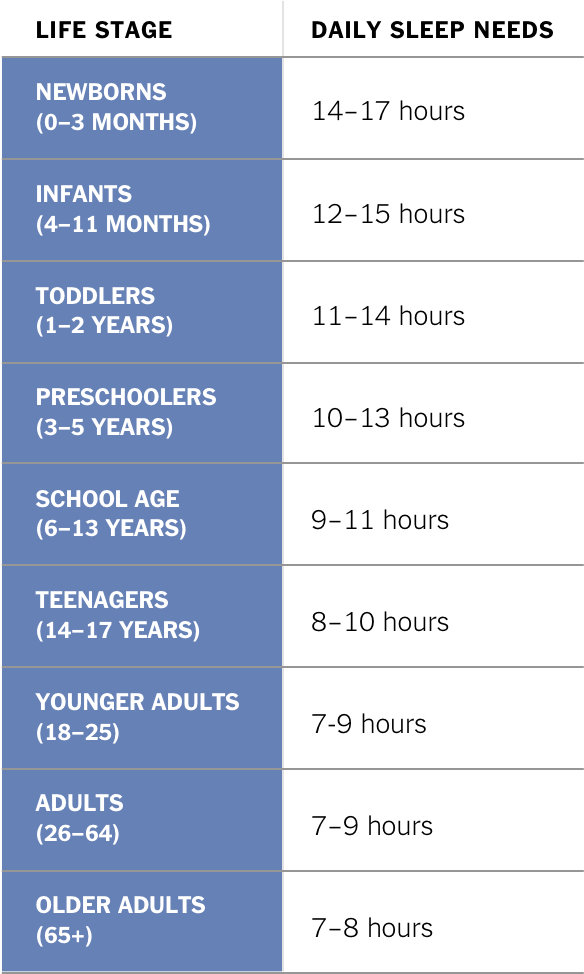How to Get a Better Night’s Sleep
Most people know they need to eat right and exercise to be healthy. But what about sleep? We spend about one-third of our lives asleep, and sleep is essential to better health. But many of us are struggling with sleep. Four out of five people say that they suffer from sleep problems at least once a week and wake up feeling exhausted. So how do you become a more successful sleeper? Grab a pillow, curl up and keep reading to find out.
How Much Sleep Do You Really Need?
If you wake up tired, chances are you’re not getting enough sleep. These strategies may help you determine your sleep needs.
THE MAGIC NUMBER
The best person to determine how much sleep you need is you. If you feel tired, you probably need more sleep. But science does offer some more specific guidance. People who sleep seven hours a night are healthier and live longer. Sleeping less than seven hours is associated with a range of health problems including obesity, heart disease, depression and impaired immune function. But sleep needs vary greatly by individual. Age, genetics, lifestyle and environment all play a role. The National Sleep Foundation recently updated its sleep recommendations based on age.

While these numbers are useful guidelines, they really don’t tell you anything about your individual sleep needs, which are largely determined by genetics — and strongly influenced by your habits.
ASK YOURSELF: ‘ARE YOU SLEEPY?’
This simple question is the best way to determine if you’re getting adequate sleep. If you often feel tired at work, long for a nap or fall asleep on your morning or evening commute, your body is telling you that it’s not getting enough sleep. If you’re getting seven or eight hours of sleep a night but still feeling tired and sleep-deprived, you may be suffering from interrupted sleep or a sleep disorder and may need to talk to a doctor and undergo a sleep study.
KEEP A SLEEP DIARY
Even if you think you’re getting enough sleep, you may be surprised once you see your sleep patterns in black and white. Some of the new activity trackers will monitor your sleep patterns for you, but you can also do it easily yourself. For the next week, keep a sleep diary:
Write down the time you go to bed and the hour you wake up.
Determine the total number of hours you sleep. Note whether you took naps or woke up in the middle of the night.
Note how you felt in the morning. Refreshed and ready to conquer the world? Or groggy and fatigued?
Try it yourself: Download and print our sleep diary worksheet.
Not only will a sleep diary will give you important insights into your sleep habits, but it will be useful to your doctor if you think you are suffering from a sleep disorder.
TAKE A VACATION FROM YOUR ALARM CLOCK
Want to really identify your individual sleep needs? Try this “sleep vacation” experiment. To do this, you will need two weeks when you don’t have somewhere to be at a specific time in the morning. If you have a flexible job, you can do this any time, or you may have to wait until a vacation.
The experiment requires a little discipline:
Pick the same bedtime every night.
Turn off your alarm.
Record the time you wake up.
Chances are, you will sleep longer during the first few days, because you are catching up on lost sleep, so the first few days of data won’t be useful. But over the course of a few weeks, if you stick to the scheduled bedtime and allow yourself to wake up naturally, you’ll begin to see a pattern emerge of how many hours of sleep your body needs each night.
Once you determine your natural sleep needs, think about the time you need to wake up to get to work or school on time and pick a bedtime that allows you enough sleep to wake up naturally.